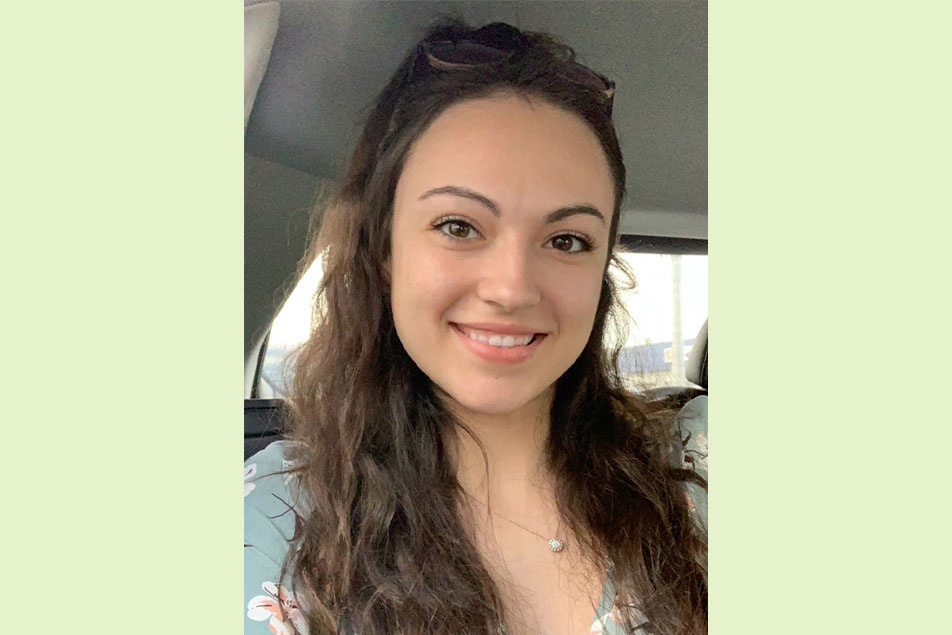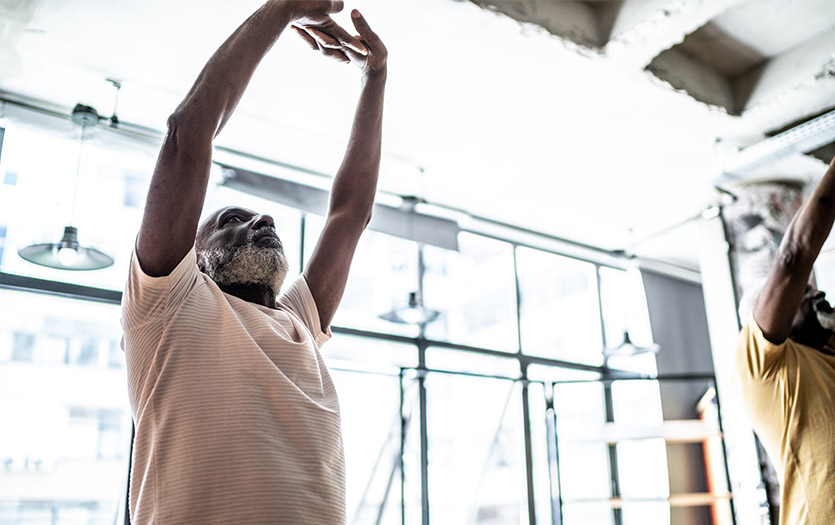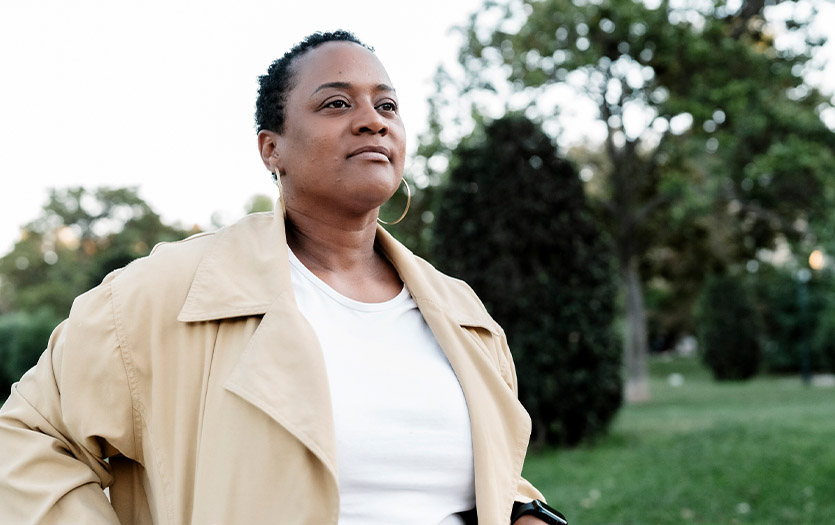
This year, at the annual Go Red for Women Luncheon, hosted by the American Heart Association, organizers shared the story of Megan Horton, a young woman who suffered a surprising stroke during her freshman year at Huntington University. We invited Megan to share more about the events of that day, and what she wants others to know about their risk of stroke.
How was your health leading up to your health event?
I was perfectly healthy, except for a few migraines a day for a couple of months. Some were short – somewhere between 10 and 15 seconds – and others lasted for hours. I was a three-sport athlete in high school and had just graduated and moved into my college dorm the night before. I had never had any serious health problems.
What do you remember about the day of your health event?
I remember nearly everything. I woke up and couldn't move my arm or rollover, but I was sleeping in the crack between the wall and the bed, so I didn't think anything of it. Then I went to the bathroom and started to dry heave. I thought it was strange, but went back to my room and started to get dressed for the day.
I’d woken up before my roommate's alarm had gone off, so I was getting dressed as quietly as I could. I couldn't get my arm to go through my sleeve and I was getting slightly irritated with myself. That was when I began to lose control over my right leg. I leaned against the wall and continued trying to put my clothes on and failing. Then I fell to the ground. I remember laying there, still trying to dress and thinking that my right side had better wake up soon. I had plans to camp with my teammates that day, and didn’t want to miss it.
Then my roommate woke up. I didn't know her extremely well at that point. I was still trying to get my clothes on. She glanced down at me and then back to her phone. I imagined she was thinking to herself, "Oh no, I got stuck with the weird one." But then she looked back up again and saw me in that same position. She came over to ask if I was OK. The only thing that I could say was, "My leg." But there was nothing visibly wrong with them. She knew a little bit about strokes and asked me if I could smile, and at that point, I could. She decided to call my coach anyway.
I was so embarrassed that this was all happening in front of Laura, my roommate, that a tear slid down my cheek. But Laura, being the amazing person that she is, just wiped it away and held my hand until he got there. Once he arrived, my coach carried me down flights of stairs to his car and drove me to the emergency room, which was only two minutes away. While I was at Huntington, they ran some tests and the physician there was concerned that it might be a psychological problem or conversion disorder. After discussing it with my mom, my care team decided to airlift me to Parkview Regional Medical Center (PRMC) in Fort Wayne.
At this point, I could barely talk. My face was completely drooped, but I still wasn't scared. I got to talk to my mom on the phone and she told me that I was coming to see her. She asked how I was feeling, and I managed to say, “Fine.” I also remember seeing one of my old high school teammates who worked at the hospital and trying to make small talk with her, but being unable to carry on a conversation. Soon enough, I was in the helicopter.
When we were flying, I knew that something was wrong, but I thought that everyone was overreacting. My right leg began to twitch and I tried to get the woman accompanying me to listen, so I could tell her it was finally waking up. She just offered me comfort and assured me that everything was going to be OK. We were almost there. “Thank goodness,” I thought. “I’m sweating under all of these blankets.”
When we touched down, I recognized the landing pad from a field trip that I had gone on just months before, but we weren't allowed out there because there was too much wind. I kid you not, the next thought that went through my mind was, "Ha! I get to be out here when no one else does!" I still had no idea of the weight of my situation.
The next thing I knew, I was being rushed through hallways. I remember thinking it was just like in the movies, when they show the lights passing by as you stare at the ceiling. Then I was with my family, except for my sister who was still making the drive from more than an hour away, to see me. A tear fell down my cheek, but I wasn't scared or sad, so I don't really know why it did. My brother was right there to wipe it from my face. My mom kept telling me that I was going to be okay and that they were going to fix me up. She’d never been wrong before, so I trusted her.
The thought never crossed my mind that my life was in danger. My dad kept talking to me in the way that only a dad can, trying to comfort me. To this day, I still get choked up when I think about the fact that as soon as they wheeled me out of that room, he started to cry. I remember my neurosurgeon coming in and talking to me and my family. I was trying to nod along and act like I was following, but I honestly couldn't tell you what he said.
They wheeled me in for surgery. I woke up a few times, and somehow I knew that the procedure had something to do with my head, so I would move my legs to let them know that I was awake. Later, I would learn that they actually went through a blood vessel in my groin. The last time that I woke up I felt cold, like when you're carrying a heavy bag for a really long time and you're finally able to put it down and there is a rush of coldness through your arm. That was when I knew that I was fixed. They gave me more medication and put me to sleep one more time. When I woke up, I was told that I did great, and then they sat me up and started to wheel me out of the surgery doors. My family was waiting right outside the doors and I could see the stress and worry in their faces. I gave them a big smile and I could see the happiness and relief rushing through them as they laughed and started talking to each other and to me.
When they told me I’d had a stroke, possibly triggered by the estrogen in my birth control, I didn't really know what that was, so my immediate reaction was to turn to my mom for further explanation.

What was your recovery journey like?
Treatment for me involved a lot of therapy and a little bit of aspirin. Honestly, I would say that I’m still in my recovery journey. I'm still not where I would like to be, but I'm working at it.
Recovery has involved a lot of speech therapy, physical therapy and occupational therapy, all of which I didn't like because I am such an independent person and didn't like that I needed help. That being said, I’m still immensely thankful for the support and treatment I received.
One of my favorite stories about my recovery involves colors. When you have a stroke, nurses come in every two hours or so and ask you a series of questions. One of the questions that they asked me was, "What are the following things: blue, red and yellow?" I sat there for a good two minutes thinking about what these were. My sister was sitting there freaking out thinking that my brain was ruined and that I didn't remember the simplest of things. But in reality, I couldn't remember the word ‘primary’ and I wasn't about to say "Not secondary colors." So once the word came to me I said primary colors and my sister threw her hands up into the air and started to laugh and said that I am too smart for my own good.
Today, I still struggle with my memory, my handwriting is atrocious, my body is weak and won't really do what I want it to. But my volleyball team and the people at Huntington University have been nothing but supportive and accommodating to my situation. Volleyball has really helped me to gain some muscle and control over my body, and the friends that I have made from it are amazing.
What would you tell other young people about the risk of stroke and what to watch for?
I would tell others that if something different is happening in your body, go get it checked out. If it’s nothing and you wasted a couple of hours of your time, in my opinion, that's much better than not getting it checked out and putting your life in danger.
Review the FAST signs of stroke.
Watch Megan tell her story the American Heart Association:



